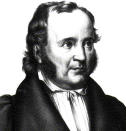101 ordspråk av Jean Paul Richter
 Jean Paul Richter
Jean Paul Richter
Jean Paul Richter föddes den March 21st 1763 och dog den 14 November 1825 - and humorist.
Mer info via Google eller Bing.
Mer info via Google eller Bing.
Number of proverbs are 1469561
varav 1407627 på engelska
Proverb (1469561 st) Search
Categories (2627 st) Search
Authors (167535 st) Search
Photos (4592 st)
Born (10495 st)
Died (3318 st)
Dates (9517 st)
Countries (5315 st)
Idiom (4439 st)
Lengths
Toplists (6 st)
This website focuses on proverbs in the Swedish, Danish and Norwegian languages, and some parts including the links below have not been translated to English. They are mainly FAQs, various information and webpages for improving the collection.
Här har vi samlat ordstäv och talesätt i 35 år!
Vad är proverb?
Hur funkar det?
Vanliga frågor
Om samlingen
Ordspråkshjältar
Hjälp till!
varav 1407627 på engelska
Proverb (1469561 st) Search
Categories (2627 st) Search
Authors (167535 st) Search
Photos (4592 st)
Born (10495 st)
Died (3318 st)
Dates (9517 st)
Countries (5315 st)
Idiom (4439 st)
Lengths
Toplists (6 st)
This website focuses on proverbs in the Swedish, Danish and Norwegian languages, and some parts including the links below have not been translated to English. They are mainly FAQs, various information and webpages for improving the collection.
Här har vi samlat ordstäv och talesätt i 35 år!
Vad är proverb?
Hur funkar det?
Vanliga frågor
Om samlingen
Ordspråkshjältar
Hjälp till!
 |
This website focuses on proverbs in the Swedish, Danish and Norwegian languages, and some parts including the links below have not been translated to English. They are mainly FAQs, various information and webpages for improving the collection.
Här har vi samlat ordstäv och talesätt i 35 år!
Vad är proverb?
Hur funkar det?
Vanliga frågor
Om samlingen
Ordspråkshjältar
Hjälp till!
|

